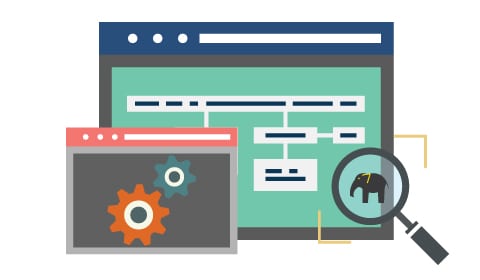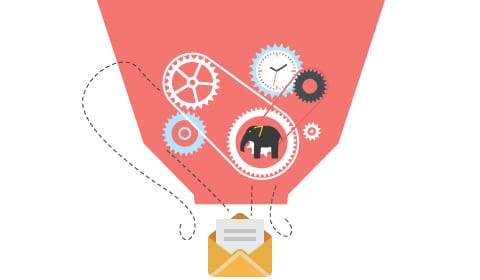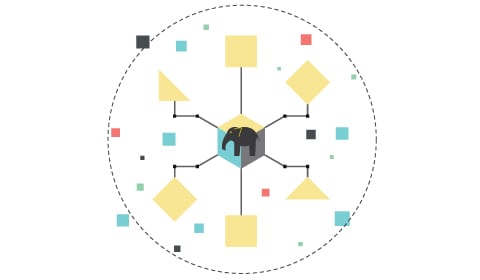Microsoft Azure Data Engineering Training Cou ...
- 15k Enrolled Learners
- Weekend
- Live Class
Most of us know the story of the woodcutter, who went to work for a timber merchant. His salary was based on the number of trees he could cut for the day. On the first day, he could cut 20 trees. Happy with the result, and even more motivated, he tried harder the next day and came back with 30 trees. However, his success was short-lived. After a week, the number of trees he was cutting was dwindling. “I must be losing my strength,” the woodcutter thought. He decided to go and see his boss and apologized for not living up to the expectations. He was taken aback, when his boss asked him,
“When did you last sharpen your axe?”
He replied, “I have been busy cutting more trees for you and I just did not have the time to sharpen my axe.”
Cut to modern world: I am sure many of us can relate to this story to some extent. What is crystal clear is this: the axe — or in today’s context, technology — needs to be upgraded constantly, without which progress is impossible.
Most of the companies today are waking up to the needs of technology across all domains and reaping the benefits. Let’s take the example of book retailers. Earlier, traditional booksellers in stores could easily track which books were popular and which were not, based on the number of those particular books sold. If there was a loyalty program, they could tie some of those purchases to individual customers. That was just it.
But once the focus was on online shopping, there has been a 360 degree turnaround in understanding customers. Online retailers — the biggest example being Amazon — were able to track not only what customers bought, but also their viewing history; how did they navigate; how did the reviews, page layout and promotions influence them. They even came up with algorithms to predict which book a particular customer would love to read next. Booksellers in physical stores just could not have this kind of information.
No prizes for guessing why Amazon pushed several bookstores out of business. It is evident that it tapped in to the need to manage its volumes of customer data that was being overlooked by the traditional booksellers.
This is where big data comes into the picture. The hype surrounding big data is not just hype. We now live in a world that is dominated by big data, whether we accept the fact or not. The amount of data doubling every day across the world is undeniable. Pat Gelsinger, the CEO of VMware, has rightly said, “Data is the new science. Big data holds the answers.” Using that data effectively is the crux of the matter.
Companies like Facebook and Twitter have been efficiently using big data for quite some time now. Today, organizations across all domains whether big MNCs or startups — be it social media or health care or finance or airlines — are embracing the big data wave and are investing big time in it. The domino effect of these upgrades and new initiatives are bringing in a lot of changes in job titles and job roles.
But the big question is: Are professionals ready to upgrade to the latest technology and take up new challenges? Shifting to big data is imperative, as it touches nearly every aspect of our lives, whether we realize it or not.
Technology moves at a very fast pace. And, if a Java professional is still fiddling with Java 1.3 code, he needs to look past and upgrade to the most up-to-date technology. Big data and Hadoop are synonymous. Going by the demand and the growing popularity, Hadoop, an open-source — Java-based programming structure — rules the market today. International Data Corporation predicts that the big data and Hadoop market worldwide will hit the $23.8 billion mark by 2016.

Is it prudent for a Software testing professional to jump the Hadoop bandwagon? The answer, I am sure, will be ‘yes’ for many. A testing professional’s job, which entails ironing out bugs and improving the quality of the finished product, can get monotonous at times. He may feel stuck in the rut after a point doing the same kind of work day in and day out. This is when the need to upgrade his skills to big data and Hadoop can come in handy. His realm of opportunities will also open up.

Even a mainframe professional’s work involves bulk data processing. And, handling volumes of unstructured data can be time consuming besides getting monotonous. Take the case of a person, who is involved in census data processing in mainframe. His job includes monitoring and collecting questionnaires, checking, data entry, storage, tabulation etc. This can get mind boggling, right? The process is not only time consuming, but also expensive. Hadoop being an open-source platform can be the most viable alternative to manage volumes of data for him. With Hadoop he will also have better career opportunities that are increasing by the day.

What about the data warehousing professional and the ETL developer, who handle loads and loads of data? Given the enormous flow of data today, they get so caught up in this data that their work is restricted to just handling the flow of data. But by upgrading to Hadoop, these professionals can effortlessly handle volumes of data. Also, how can they forget the big opportunities in the data management sector?

There is also the Business Intelligence professional whose challenge lies in storing Big Data. For example, in an advertising agency, he will constantly need answers to analytic questions, such as: What drives people to certain content? What’s their profile? How do we draw more people to an area? It is only with the help of Hadoop that he can scale up and deliver good answers frequently.

Whether you are a Java professional or a software testing engineer or business intelligence professional, there is no debating the fact that big data technologies are becoming a common accompaniment. Therefore, you need to look beyond and upgrade to the challenges of big data technologies. Lest, you become like the woodcutter who was so busy felling trees that he forgot to sharpen his axe.
Is your profession/doma
If you also want to learn Big data and make your career in it then I would suggest you must take up the following Big Data Architect Certification.
Got a question for us? Mention them in the comments section and we will get back to you.
Related Posts:
All You Need to Know About Hadoop
 Thank you for registering Join Edureka Meetup community for 100+ Free Webinars each month JOIN MEETUP GROUP
Thank you for registering Join Edureka Meetup community for 100+ Free Webinars each month JOIN MEETUP GROUPedureka.co
Hi Team,
I have 5 years of SAP experience in SD & MM module (functional consultant). Purely a non-technical man. What would be the job opportunity level if i finish my Hadoop certificate
hi i am php developer, switch to hadoop will help me or not?
Hey Rahul, sure you can definitely think about switching to hadoop. With the current trend in the market, this can help you grow in your career. One thing important to make the transition is getting certified. We offer Big Data Hadoop Certification course as well, check it out here: https://www.edureka.co/big-data-hadoop-training-certification
Hope this helps :)
Hi,
I am Oracle DBA and Pl/SQL developer. Please help me how I could get into Hadoop Big data developer.
I don’t want to pursue career as Administrator. Please help with it.
Thanks!
Hey Chhaya, upskilling with a new technology will require some dedication from your side. If you are focused enough then, you can definitely make your career in Big Data field. We provide live instrudtor led sessions online for our training programs. The best way to get into a new field in tech is to get certified in it. These certifications will help you authenticate your knowledge in front of potential employers. And our certificates can be verified by your organization as well. Here is a link to our Big Data Hadoop course: https://www.edureka.co/big-data-hadoop-training-certification
Hope this helps :)
This is really very interesting topic, I am system engineer with support, delivery and administration experience in Linux/Unix world, I’d presume Big Data/Hadoop administration can be good move for me (as I don’t have programming experience)
may you please advise me about a good course for me
Thanks
Hey Sameer, sorry for the delayed response. You can definitely think about reskilling with Big Data. Given your back ground and experience it will be the most suited course for you to take up. And the certification we provide at the end of our course will help you authenticate your expertise in this field in front of potential employers. You do not need tohave any programming experience to learn Big Data. You can check out our course here: https://www.edureka.co/big-data-hadoop-training-certification
Hope this helps. Cheers :)
I am Windows Server Administrator with 4 years of experience. I am interested to learn Hadoop. Will I get opportunities as Hadoop Developer if I learn Hadoop at this point of time in my career ? Thanks in Advance for reply
I am a working professional with 6 years experience into various roles like technical support, Windows server administration , Cisco WebEx application support /site admin, integrated Data center operations. What is the scope for me or any suggestions to grow
Hi,
I am a .NET developer with around 10 years of experience, I am trying to peruse in Bigdata/Hadoop however want to understand the technical difficulty (out of 10) in switching from Microsoft to Hadoop environment.
Hey Shailesh, thanks for checking out our blog. Considering your background, you could use Hadoop in Microsoft Azure which would be easier. But, to work on the more widely used Hadoop environment, some experience working on a Linux environment would be beneficial. While there are no pre-requisites as such to learn Hadoop, basic Java/Python knowledge would help you. If you do not have Java knowledge then, you do not need to worry, as there are Hadoop ecosystem tools such as Pig and Hive which are similar to SQL that you can work on. Also, when you enroll in our Hadoop course, we even provide a complementary self-paced course on Java essentials for Hadoop, so it won’t be a problem. You can check out more course details here: https://www.edureka.co/big-data-hadoop-training-certification. Hope this helps. Cheers!